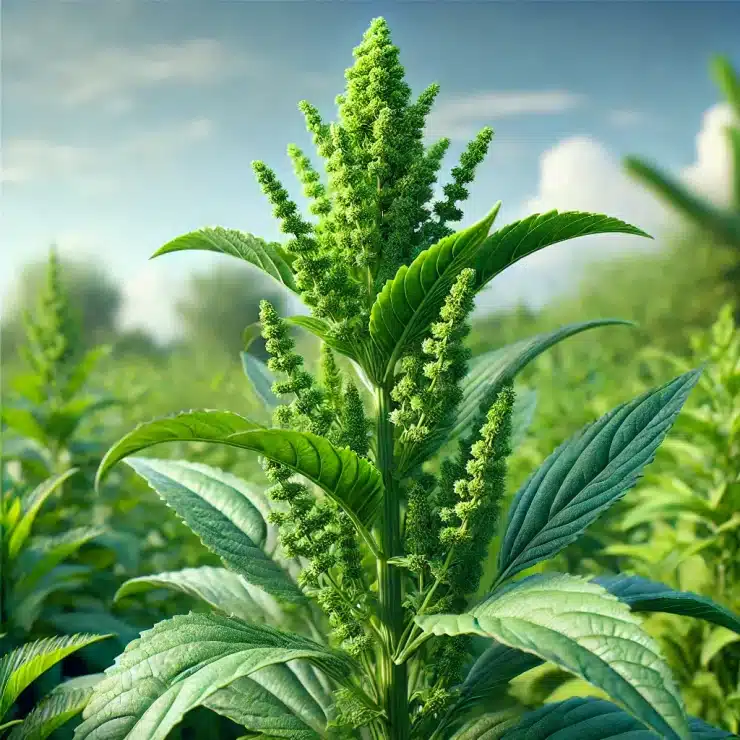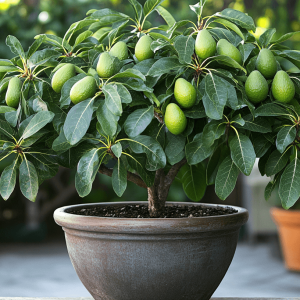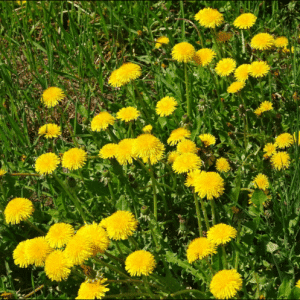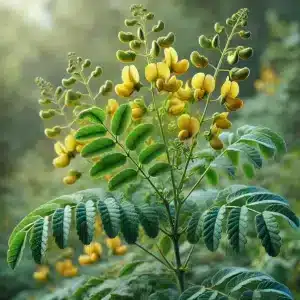
Pigweed, also known as amaranth, is a nutrient-dense plant that offers various health and agricultural benefits. Here are 10 benefits of pigweed:
Rich in Nutrients: Pigweed leaves are packed with vitamins (like vitamins A, C, and K) and minerals such as calcium, magnesium, potassium, and iron, making it highly nutritious.
High in Protein: The seeds of pigweed (amaranth) are a great source of plant-based protein, containing all nine essential amino acids, making it a complete protein source.
Gluten-Free Grain: Amaranth seeds are gluten-free, making them an excellent alternative grain for individuals with celiac disease or gluten intolerance.
Antioxidant Properties: Pigweed contains antioxidants such as flavonoids and phenolic acids, which help protect the body from oxidative stress and reduce the risk of chronic diseases.
Supports Digestive Health: Both the seeds and leaves are rich in dietary fiber, which helps improve digestion, promote bowel regularity, and prevent constipation.
Helps Manage Cholesterol: Studies suggest that amaranth seeds can help lower LDL (bad) cholesterol levels due to their high fiber and phytosterol content, supporting heart health.
Anti-Inflammatory Effects: Pigweed has anti-inflammatory compounds that may help reduce inflammation, beneficial for people suffering from inflammatory conditions like arthritis.
Boosts Immune System: The high levels of vitamin C in pigweed leaves can boost the immune system, helping the body fight off infections and maintain overall health.
Promotes Bone Health: Pigweed is a good source of calcium and magnesium, both crucial for maintaining strong bones and preventing osteoporosis.
Drought-Resistant Crop: Pigweed is a resilient plant that grows well in poor soil conditions and drought-prone areas, making it a valuable crop for food security in challenging environments.
Pigweed is versatile, whether consumed as leafy greens or as grains, and offers health, nutritional, and agricultural benefits.
Mimosa pudica, also known as the “sensitive plant” or “touch-me-not,” is a fascinating plant known for its ability to fold its leaves when touched. Beyond its unique characteristics, Mimosa pudica has a long history of…
Goosegrass (scientific name Galium aparine), also known as cleavers, stickyweed, or catchweed, is a common wild herb with a variety of medicinal uses. Often considered a weed, goosegrass has been used for centuries in…
Nasturtiums, known for their vibrant, peppery-tasting flowers and leaves, are not only beautiful but also highly nutritious. This edible flower has been used in traditional medicine and culinary practices for centuries…






